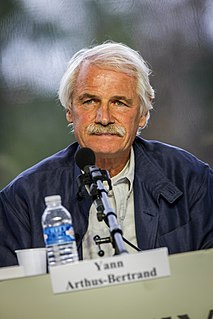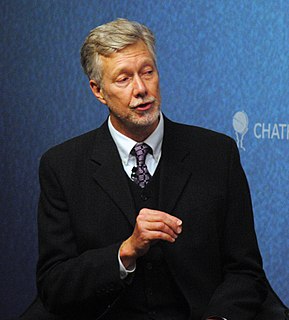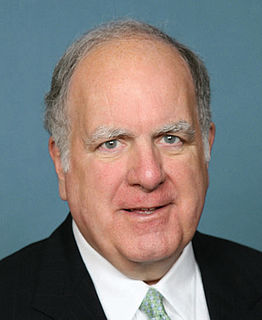A Quote by Stuart L. Hart
The money economy thus leaves a large ecological footprint, defined as the amount of land and resources required to meet a typical consumer's needs. For example, with only about 4% of the world's population, the United States, the largest money economy, consumes in excess of one-quarter of the world's energy and materials and generates in excess of 25 percent of the world's greenhouse gas emissions.
Related Quotes
Health care in the United States is responsible for a tremendous amount of waste and a significant amount of greenhouse gas emissions. For every hospital bed, the American health care system produces about 30 pounds of waste every day; over all, it accounts for about 10 percent of national greenhouse gas emissions.
Then there is another area of activity - economic interaction between Russia and the United States. Right now, for example, it has already been made public that we signed a large deal to privatise one of our biggest oil and gas companies, Rosneft. We know for sure that US companies, as well as Japanese ones, by the way, are keenly interested in cooperation in Russia's oil and gas sector, in joint work. This has immense significance for world energy markets and will directly affect the whole world economy.
I remember Secretary of State [George] Shultz one day saying that America is an economic model for the world. I replied to him that America represents 5 percent of the world's population and consumes 30 percent of the world's energy. What if everyone in the world lives like Americans? Where do we get the energy for this standard of living?
The fact is that seven per cent of the global population emits 50 per cent of greenhouse gas emissions, and the proportions are the same for the use of energy and raw materials, meat, wood, etc. Simply put, an infinitesimal minority consumes the most and imposes damage on the overwhelming majority, while asking it to change.
Historically, the United States has had a wonderful energy policy. We're blessed with a diversity of resources. We have oil. We have gas. We have coal. We have nuclear. And renewables. And as a result, one of our biggest competitive advantages has been affordable energy. You need a strong economy and you need affordable energy to fuel that economy.
Roughly two billion people participate in the money economy, with less than half of those living in the wealthy countries of the developed world. These affluent 800 million, however, account for more than 75 percent of the world's energy and resource consumption, and also create the bulk of its industrial, toxic, and consumer waste.
Yes, twenty-seven million in slavery is a lot of people, but it is just .0043 percent of the world's population. Yes, $23 billion a year in slave-made products as services is a lot of money but it is exactly what Americans spent on Valentine's Day in 2005. If humans trafficking generates $32 billion in profits annually, that is still a tiny drop in the ocean of the world economy.
The transition from coal, oil, and gas to wind, solar, and geothermal energy is well under way. In the old economy, energy was produced by burning something - oil, coal, or natural gas - leading to the carbon emissions that have come to define our economy. The new energy economy harnesses the energy in wind, the energy coming from the sun, and heat from within the earth itself.
Great people in the United States have been disenfranchised.I'll give you an example, it has always been the way to do it, to work hard, save your money, put your money in the bank, get interest on your money and retire wealthy, at least modestly wealthy. Well, the people that have done that have been hurt terribly because there is no interest on your money. You get no money. I just signed for some CDs where you are getting a quarter of one percent. A quarter of one percent! They don't even want your money, the banks.
Man has sought to take from the natural world not only that which is necessary for his stability and survival, but often seeks to satisfy his perceived and ultimately false psychological needs, such as his need for self-display, luxuries and the like. Twenty percent of humanity consumes eighty percent of the world's wealth and is accountable for an equal percentage of the world's ecological catastrophes.



































